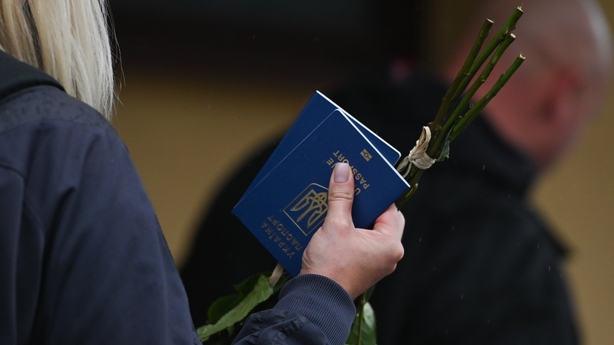The EU has announced it is extending a bloc-wide protection scheme for Ukrainian refugees into 2024.
EU home affairs commissioner Ylva Johansson also said that Ukrainians in the EU who chose to return to their country could maintain their refugee status there, as long as they notified the relevant EU country of their move.
The measures were decided before Russia unleashed a barrage of missile strikes that hit many civilian sites in Kyiv and other Ukrainian cities, sending Ukrainians scrambling for cover.
Ms Johansson said that 4.2 million Ukrainians currently hold temporary protection status under the EU scheme, which gives them the right to live and work in any EU country and benefit from housing and schooling help.
The programme - which the EU activated for the first time on 4 March in the wake of Russia's February invasion of Ukraine - was initially set to run for a year, to March next year, with the option to renew it.

But Ms Johansson announced that now it "will continue to be in place at least until March 2024".
She also said a rule in the scheme that said the temporary protection status ended once someone under it returned to their country had been changed.
"We have decided that you do not need to deregister when you go back, you can keep your temporary protection that you have received in a member state," she said.
"The only thing you need to do is to notify the national or local authorities in your hosting country that you are returning back to Ukraine."
Read more:
Latest Ukraine headlines
Massive explosions shook the Ukrainian capital this morning and other cities during the morning rush hour, in apparent Russian revenge strikes as President Vladimir Putin declared an explosion on the bridge to Crimea on Saturday to be a terrorist attack.
The attacks were the most intense to hit Kyiv since the early days of the war and sent residents fleeing for bomb shelters and thick smoke billowing skywards.
Police in the city said that at least five people died in the blasts, with 12 people injured.
Explosions were also reported in Lviv, Ternopil and Zhytomyr in Ukraine's west, and in Dnipro in central Ukraine.
Following the strikes, the International Committee of the Red Cross and at least one other aid group paused their field work in Ukraine for security reasons.
The ICRC has some 700 staff working at ten locations across the country and delivers aid and medicine, including to the millions of people displaced by the ongoing conflict.

